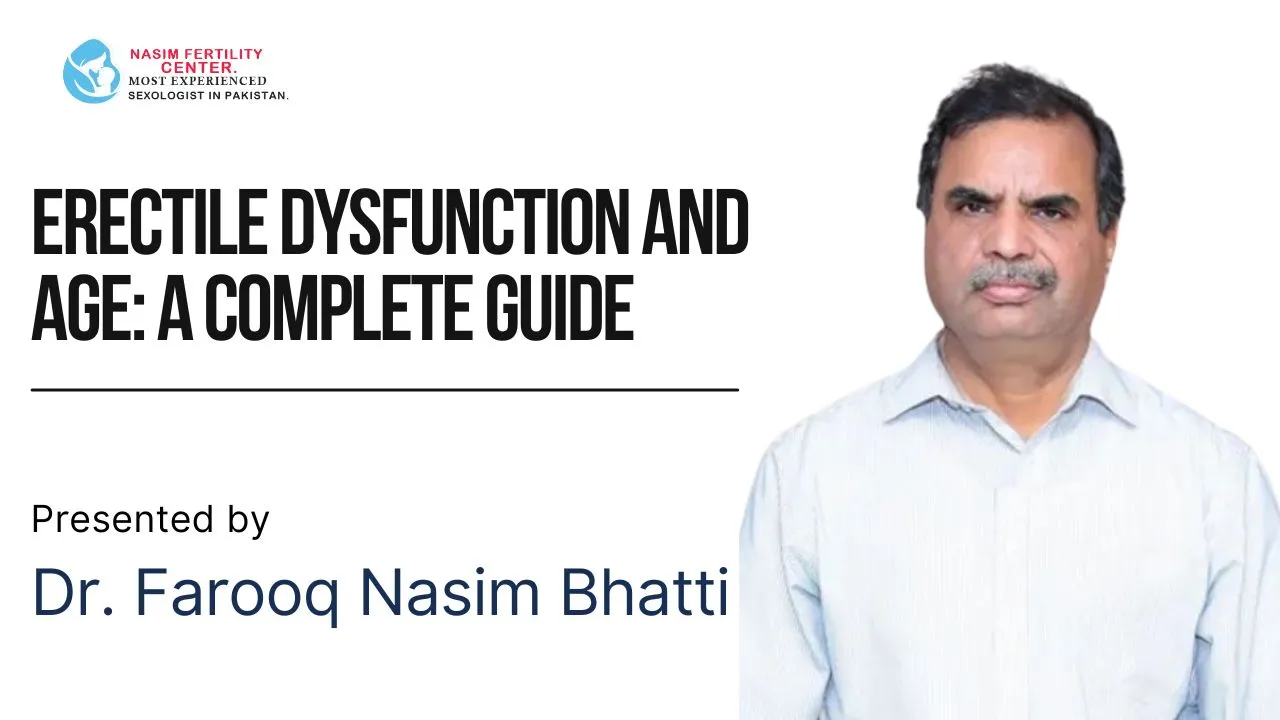
Erectile Dysfunction (ED) is a common condition that affects many men, particularly as they age. However, it’s important to understand that while age can increase the risk of ED, it is not an inevitable part of aging. This blog post will explore the relationship between erectile dysfunction and age, the underlying causes, and the available treatment options.
What is Erectile Dysfunction?
Erectile dysfunction, often referred to as impotence, is the inability to achieve or maintain an erection sufficient for satisfactory sexual intercourse. The process of male sexual arousal is complex and involves the brain, hormones, emotions, nerves, muscles, and blood vessels. Any disruption in this sequence can lead to ED.
Age and Erectile Dysfunction
Age does not directly impacts on Erectile Dysfunction, but there are many other factors involved that contributes to ED with age. According to various studies, more than half of men between the ages of 40 and 70 experience some form of ED. However, aging itself is not a direct cause of ED. Instead, age-related health issues and changes in the body contribute to the condition.
Medical Causes of ED
Several medical conditions can lead to ED, and these conditions often become more prevalent with age:
- Cardiovascular Diseases: Conditions like heart disease, high blood pressure, and atherosclerosis (clogged blood vessels) can impede blood flow to the penis, making it difficult to achieve an erection.
- Diabetes: Men with diabetes are two to three times more likely to develop ED. Diabetes can damage nerves and blood vessels, which are crucial for an erection.
- Hormonal Changes: Low testosterone levels, which naturally decline with age, can affect sexual desire and erectile function.
- Neurological Disorders: Conditions such as Parkinson’s disease, multiple sclerosis, and stroke can interfere with the nerve signals necessary for an erection.
- Obesity and Metabolic Syndrome: These conditions increase the risk of vascular disease and diabetes, both of which can cause ED.
Kya aap Erectile Dysfunction (ED) ka shikar hain?
Sharmaayein nahi — Dr. Farooq Nasim Bhatti, Pakistan ke top sexologist se confidential consultation lein aur apni mardana zindagi mein dobara se taqat aur yaqeen laayein.

Psychological Causes of ED
ED can also be influenced by psychological factors, which may become more significant with age:
- Masturbation: Masturbation is a normal sexual activity, but excessive or improper techniques can lead to erectile dysfunction. Aggressive masturbation can damage penile tissues and nerves, leading to ED. Psychological factors, such as guilt or anxiety associated with masturbation, can also contribute to erectile dysfunction.
- Stress and Anxiety: Concerns about sexual performance or other life stressors can lead to ED.
- Depression: Mental health issues can diminish sexual desire and contribute to ED.
- Relationship Problems: Poor communication and unresolved conflicts with a partner can affect sexual function.
Lifestyle Factors
Certain lifestyle choices can increase the risk of ED:
- Smoking: Tobacco use restricts blood flow and can lead to vascular disease, which affects erectile function.
- Alcohol and Substance Abuse: Excessive alcohol consumption and drug use can impair the nervous system and reduce sexual responsiveness.
- Lack of Physical Activity: Sedentary lifestyles can contribute to obesity and cardiovascular problems, both of which are risk factors for ED.
Treatment Options
The good news is that ED is treatable at any age. Treatment options vary depending on the underlying cause and can include:
Medical Treatments
- Medication: Like the treatment of any illness, restoring natural sexual power and maintaining good sexual strength require fundamental guidance. Temporary medications like Viagra and Cialis are not used because they lose their effectiveness after some time. Instead, sex therapy, counseling, and medications (which are not from the Viagra and Cialis group) aimed at restoring natural sexual power are utilized. With 10 weeks of treatment, the patient’s natural sexual power is restored, and by following the doctor’s instructions, male potency remains intact for life.
- Hormone Therapy: Testosterone replacement therapy may be recommended if low testosterone is a contributing factor
- Penile Injections and Suppositories: Medications can be injected directly into the penis or inserted as a suppository to stimulate an erection.
- Vacuum Erection Devices: These devices use suction to draw blood into the penis and a tension ring to maintain the erection.
- Surgery: In severe cases, surgical options like penile implants or vascular surgery may be considered.
Lifestyle Changes
- Quit Smoking: Stopping tobacco use can improve vascular health and erectile function.
- Limit Alcohol: Reducing alcohol intake can help restore normal erectile function.
- Exercise Regularly: Physical activity can improve overall health and reduce the risk of conditions that cause ED.
Treatment From Expert Erectile Dysfunction Doctor
Conclusion
ED at all ages is treatable. While the risk of erectile dysfunction increases with age, it is not an inevitable part of aging. Understanding the various causes and treatment options can help men manage this condition and maintain a healthy and satisfying sex life. If you experience symptoms of ED, it’s important to consult with a healthcare provider to determine the underlying cause and appropriate treatment.
By addressing both the physical and psychological factors, men can find effective solutions to overcome ED and improve their overall quality of life.
Frequently Asked Question
Disclaimer
This information is for educational purposes and not the treatment. For treatment, you need to consult the doctor.

Dr. Farooq Nasim Bhatti (MBBS, FAACS – USA, Diplomate: American Board of Sexology, CST, HSC – Hong Kong, CART – Malaysia & China) is a qualified medical sexologist with 30+ years of experience. He has presented 21+ research papers internationally and treats sexual dysfunction through sex therapy, counseling, and pharmacotherapy to restore natural sexual function without temporary medication.

Regain Confidence with Our ED Solutions
Explore effective treatments for erectile dysfunction. Take charge of your intimacy today.


